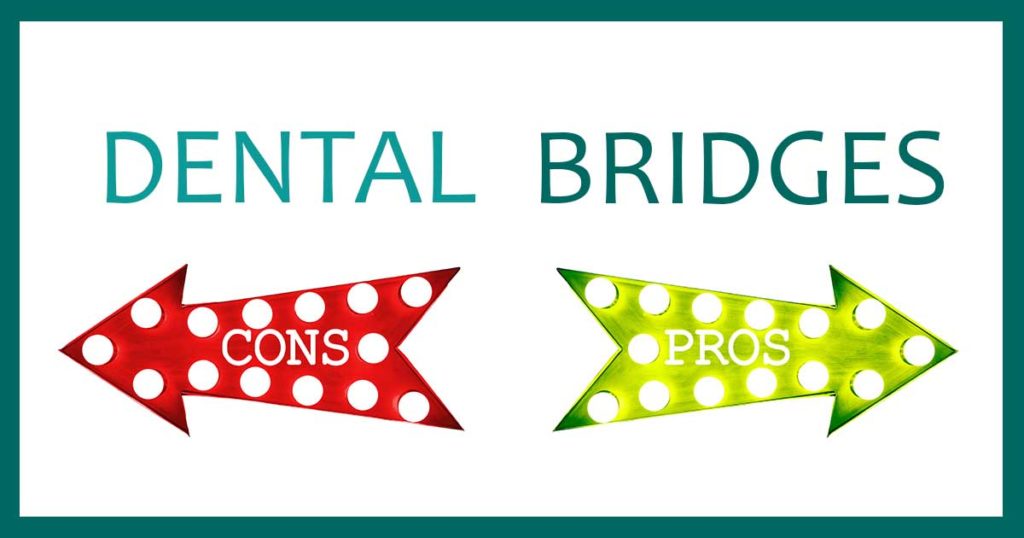
Irving Dental Office: Pros & Cons of Dental Bridges
Just like there are many different reasons to get a tooth replacement, there are just as many ways to fill the gap in your smile. Dental bridges are one option you may have come across. How can you know if bridges are right for you?
Dental bridges replace missing teeth by adhering a false tooth – or pontic – to nearby healthy teeth. Fixed bridges require grinding down the healthy teeth and fitting crowns over the top to secure the false tooth in place. Resin-bonded bridges attach to adjacent teeth without grinding them down. Overall, these two types of bridges function similarly. It’s important to note that even if you can’t see the missing tooth when you smile you still should have it replaced. Leaving the gap can cause your existing teeth to shift, change your face shape and make eating, speaking and chewing difficult. Consult with your Irving dentist about which tooth replacement options are right for you. In the meantime, take a look at our guide to the pros and cons of dental bridges – so you can be informed during your next dental appointment.
Pros of Dental Bridges
- A natural look. Many people who are considering dentures worry that their fake teeth will not appear natural. Dental bridges are designed to look and feel like your real teeth. This allows you to go about your everyday life without much interruption or nuisance.
- No removal required. Unlike traditional dentures, fixed bridges are designed to permanently stay in your mouth. This means cleaning won’t require the removal of teeth, and can be done during your normal brushing and flossing routine.
- Strong and built to last. Bridges can withstand regular chomping and chewing, just like natural, healthy teeth. If you keep them clean, they can last between five and 15 years.
- Made for you. To make the bridges, your dentist will take an impression of your teeth and create a custom mold. This ensures an excellent fit and a natural look for your smile.
- Cost. Another popular fix for missing teeth is getting dental implants, which can cost more than bridges. Dental bridges are similarly sturdy and attractive looking, but cost a lot less. If money is an issue but you are looking for a high quality option, bridges should be high on your list.
Cons of Dental Bridges
- A different clean. Because the pontic and two crowns are fused together, cleaning the bridge can be a challenge. Usual flossing cannot be done. Keeping the bridge clean is important not only for overall mouth health, but also to ensure the device will last. Your dentist can recommend cleaning techniques.
- Not completely permanent. Though ten years is a long time, it can be a hassle for patients to get their bridge replaced every decade. If you think this will be a burden on your schedule or finances, consider other tooth replacement options such as dental implants.
- Harm to healthy teeth. It may seem counterproductive to grind down healthy teeth in order to replace a missing one. Though this method is highly effective and fine for overall mouth health, some patients may find this concerning.
- A weaker bond. If you choose resin-bonded bridges, you may find that the teeth don’t last as long in your mouth. This could be an issue if you are not willing to visit the dentist more regularly or pay for replacements.
- Cost. Though bridges are typically cheaper than implants, they are not the cheapest option for tooth replacement. If your budget is tight, consider another option. Your dentist may also offer payment plan options if you ask.
Consider this article a starting point for your journey towards getting your teeth replaced. Missing teeth should be replaced right away if possible but if you have found yourself with a missing tooth for years, the most important part is moving forward now. Whatever tooth replacement option you decide, stay informed and make the best choice for your smile and oral health! Schedule your Irving dental bridges or tooth replacement consultation with Irving Family Dental today!



